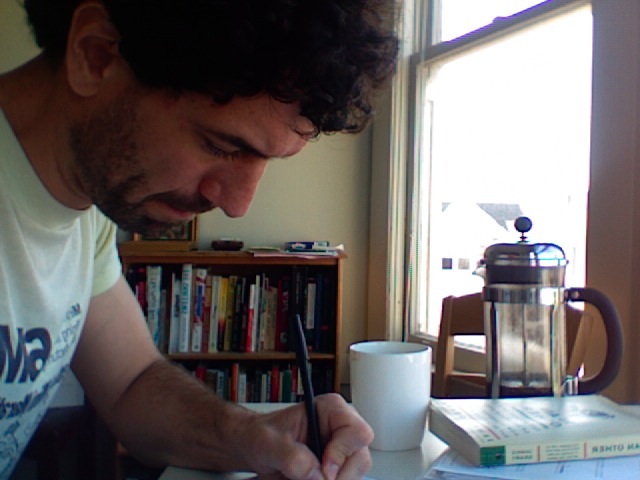How to grow from writer to author
Writing is hard. Becoming an author is even harder.
For me the difference is that a writer is always writing (there are tens of millions of us), and an author publicly calls her- or him- self an author and actually publishes (meaning finishes and somehow makes public) work. It's not so much about volume as it is about commitment to the craft, how you see yourself, and what you put your time and energy toward. I would say I was a writer for about 25 years. I have stacks of journals and I would publish xeroxed zines to my family and friends. I had a few poems published.
2 years ago, I decided it was time to be an author. It's changed my life. I've published 2 books and have a third on the way this summer. I have an amazing community of fellow authors who I meet with in meetup groups, online forums (like this one), and conferences. I learn, I write, I grow. I struggle, I publish, I sell books. I'm an author.
I also read a lot. And I found 5 books to be pivotal to my transition from writer to author. This week I'm going to review each of them, talking about their message, how they helped me, and why I think you should read them.
1. Turning Pro, by Steven Pressfield: This book rocked my world. It's about navigating "the passage from the amateur life to a professional practice." follow-up to his bestseller The War of Art, which is also excellent. This book was a huge influence on how I thought about myself as an author. As he says, “You don’t need to take a course or buy a product. All you have to do is change your mind.”
2. Story, by Robert McKee: This book is subtitled "Style, Structure, Substance, and the Principles of Screenwriting." It's explicitly about screenwriting, but the stuff that McKee talks about apply to any narrative venture. It helped me write an exponentially better book that made my wife go from sort of liking my book to saying, "It's much better this time, but I can't quite say why..." Also, I can't take full credit on this one. My amazing editor, John DeDakis, ready my second draft and said, kindly but firmly, "Have you read Story by Robert McKee? I think you should :)"
3. TheWriteLife, from 30 Day Books: This is a digital magazine, not a book, but it's awesome. It's a lifestyle magazine for writers. Everything from inspiration to coffee to publishing and marketing tactics. I think it's important to think about being an author as a lifestyle, not just a hobby you do on weekends. And it's inspirational, which is important for a craft as isolating and roller-coasterish as writing. As Laura Pepper Wu, TheWriteLife founder, says: "It's about inspiring you to take your writing to the place you always dreamt of taking it to."
4. Self-Publishing Bootcamp, by Carla King- Carla is so good it's hard to even describe. I took her workshop of the same name and refer back to her book weekly. She offers straight-forward, solid advice that is spot on and actionable. Because of her workshop and book I took my own book from rough draft to published paperback in about 6 months (obviously your timeline will vary :)
5. A.P.E., by Guy Kawasaki: This book approaches being an author from a business standpoint. APE stands for "Author, Publisher, Entrepreneur," with sums up what you need to be to earn your living as an author. Everything from strategy to tactics and personal branding to book marketing is in here.
Have you read a great book that helped you become an author? Leave a title in the comments and I'd love to check it out.
